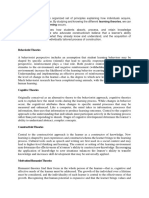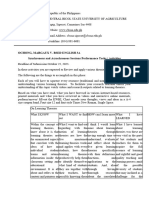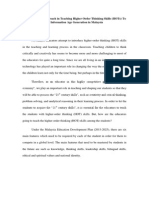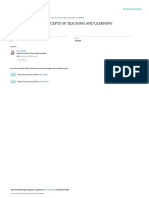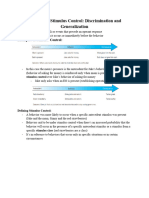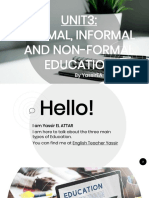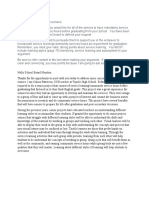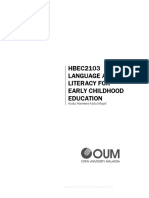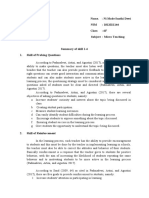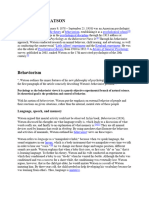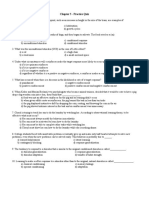0% found this document useful (0 votes)
22 views15 pagesFinal
This document is an essay exploring the impact of various learning theories on curriculum design and assessment in education. It critically evaluates theories such as Behaviorism, Cognitivism, Social Learning Theory, and Constructivism, discussing their implications for teaching practices and student engagement. The findings emphasize the importance of a multi-theoretical approach to create inclusive and effective learning environments.
Uploaded by
Omar AbdelaalCopyright
© © All Rights Reserved
We take content rights seriously. If you suspect this is your content, claim it here.
Available Formats
Download as DOCX, PDF, TXT or read online on Scribd
0% found this document useful (0 votes)
22 views15 pagesFinal
This document is an essay exploring the impact of various learning theories on curriculum design and assessment in education. It critically evaluates theories such as Behaviorism, Cognitivism, Social Learning Theory, and Constructivism, discussing their implications for teaching practices and student engagement. The findings emphasize the importance of a multi-theoretical approach to create inclusive and effective learning environments.
Uploaded by
Omar AbdelaalCopyright
© © All Rights Reserved
We take content rights seriously. If you suspect this is your content, claim it here.
Available Formats
Download as DOCX, PDF, TXT or read online on Scribd
/ 15

